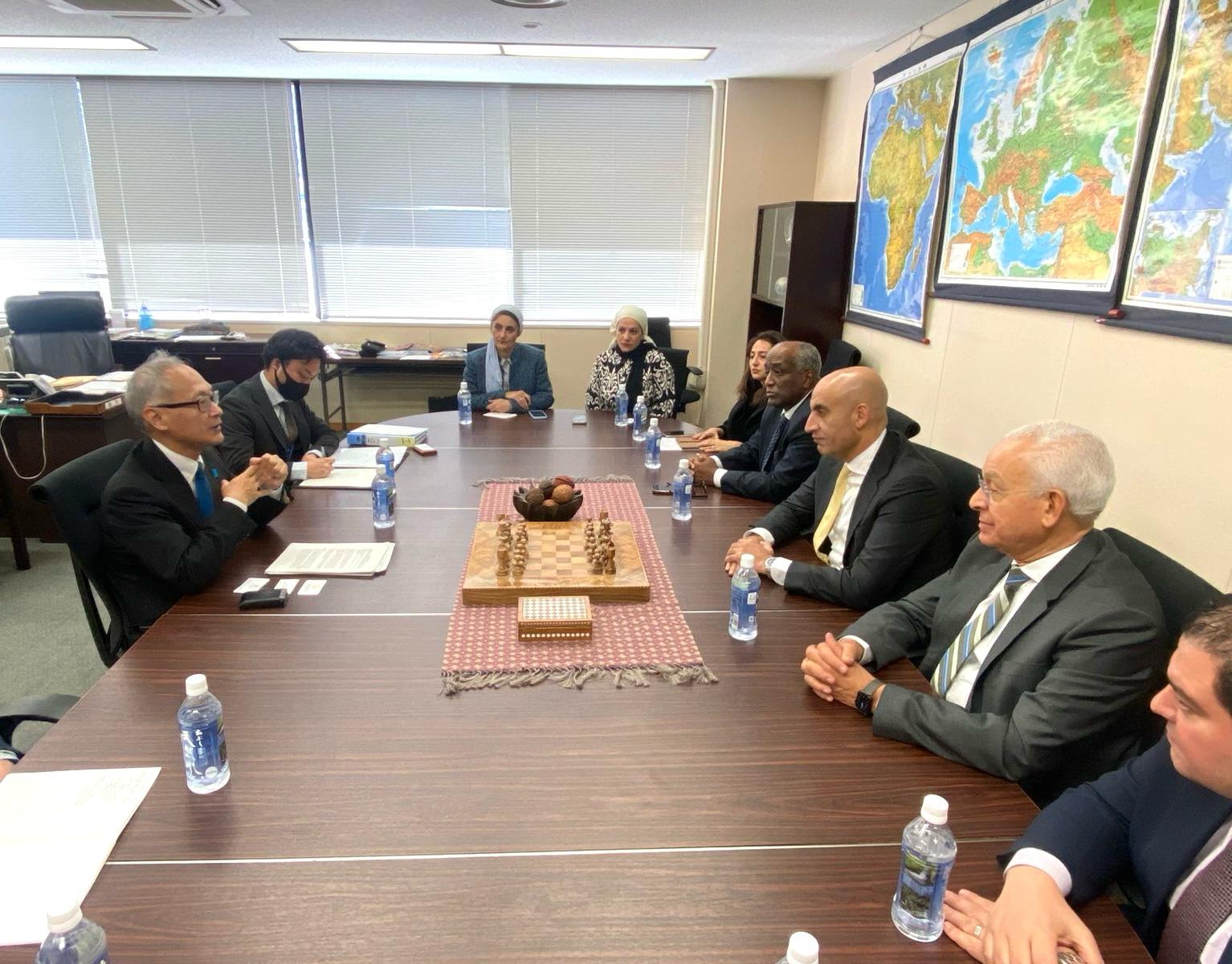Minister of Education and Technical Education meets with Japanese Assistant Foreign Minister

Mr. Mohamed Abdel Latif, Minister of Education and Technical Education, met today, Thursday, with Mr. Ishizuki Hideo, Japanese Assistant Foreign Minister for International Cooperation, to discuss opportunities to enhance joint cooperation between the two countries in the education sector.
During the meeting, Mr. Mohamed Abdel Latif expressed his appreciation for the warm reception at the Japanese Ministry of Foreign Affairs, praising the successful partnership between the two countries that has spanned 70 years of relations, most notably the partnership in the field of education, which has resulted in prominent projects such as the Egyptian-Japanese schools and the Egyptian-Japanese University of Science and Technology.
The Minister explained that developing children and enhancing their capabilities is the way to build a positive future and face the challenges of the era, pointing to the cultural similarities between Egypt and Japan, which enhance the opportunities for cooperation between the two sides.
Minister Mohamed Abdel Latif also stressed that Egypt aims to implement the Japanese educational system in Egyptian-Japanese schools, praising the role played by Japan in supporting the development of the educational process in Egypt, noting that this partnership represents a pivotal step towards achieving sustainable development in the education sector.
He stressed the importance of benefiting from the Japanese model in building an interactive educational environment that enhances students' skills and keeps pace with the requirements of the labor market.
The Minister also referred to a project to implement the Japanese technical education system "Kozen" in Egypt, and presented a proposal for a distinguished model ATS for partnership in technical education that focuses on applied education and practical training in partnership with industrial institutions, which ensures the qualification of graduates for the labor market with high efficiency.
In the context of enhancing joint cooperation, the two sides discussed a proposal to launch an Egyptian-Japanese partnership in the field of education for children with special needs, given the benefit of Japan's long experience in this field, which ensures the provision of an advanced and comprehensive educational environment for all groups.
The meeting also discussed the importance of coordinating efforts between Egypt and Japan to organize a strong presence during the "TICAD 9" conference, scheduled to be held in Japan this year, as Egypt seeks to benefit from the Japanese experience in presenting a pioneering educational model for African countries.
The meeting between Minister Mohamed Abdel Latif and Mr. Ishizuki Hideo also included discussing the importance of integration of each in the proposed educational projects supported by Japan, which include the nurseries project according to the Japanese system to enhance early childhood education, the Egyptian-Japanese schools project that integrates Japanese educational methods into the Egyptian educational system, and the Egyptian-Japanese University of Science and Technology project as a leading academic institution that supports scientific research and technological applications, and training Egyptian teachers in Japan to raise the efficiency of educational cadres and transfer Japanese expertise to Egypt.
For his part, Mr. Ishizuki Hideo expressed Japan's readiness to provide more support for educational initiatives and teacher training programs, to ensure the graduation of cadres capable of competing in the global work environment.
At the end of the meeting, the two sides affirmed their determination to continue strengthening cooperation in the education sector, which contributes to achieving Egypt's Vision 2030 in developing the education system, and benefiting from the pioneering Japanese experience to achieve a sustainable educational renaissance
